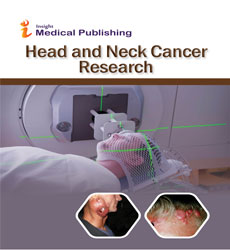Abstract
Rehabilitation of the Hearing Impaired Children
Background: The auditory rehabilitation and assessment of the early communication skills of the hearing impaired (HI) infants are quite challenging. The aim of this study was to confirm the effective method and value of early auditory rehabilitation. Additionally, the communicative skills of the infants were compared with the chronological age (CA) and the hearing age (HA) which reflected the periods of hearing sounds by amplification system and appropriate rehabilitation.
Methods: Recently developed the Korean Auditory, language and cognitive rehabilitation for infants (KARI) program was applied as a method of rehabilitation. The contents were composed of the evaluation materials, parent education and counseling materials, and professional guidelines. The case studies of 12 infants from 1 to 24 months old were performed and evaluated with a sequenced language scale for infants (SELSI), MacArthur- Bates communicative development inventories (M-B CDI), and Communication and symbolic behavior scales developmental profile (CSBS DP). The effect of the KARI program was further examined by comparing the developmental progress between HA and CA of the 19 HI and 21 normal-hearing infants.
Results: After applying for the KARI program, the scores were enhanced in all evaluation tools with statistical significance (p<0.05). SELSI scores in receptive and expressive languages increased from 19.76 to 26.76 and from 16.28 to 22.16. The scores of M-B CDI were enhanced from 6.1 to 18.8 in vocabulary expression, from 85.6 to 121.7 in vocabulary comprehension, and from 20.3 to 30.8 in gesture and play. CSBS DP scores increased from 32.36 to 38.89. Also in the comparison between HA and CA for the HI group, the scores of HA were significantly better for all the materials (p<0.05) except the production score of M-B CDI.
Conclusion: The auditory rehabilitation was proved to be effective in enhancing communicative skills for facilitating developmental progress for the HI infants.
Author(s): Jiyeong Yun
Abstract | Full-Text | PDF
Share this

Google scholar citation report
Citations : 28
Head and Neck Cancer Research received 28 citations as per google scholar report
Abstracted/Indexed in
- Google Scholar
- JournalTOCs
- China National Knowledge Infrastructure (CNKI)
- WorldCat
- Publons
- Secret Search Engine Labs
Open Access Journals
- Aquaculture & Veterinary Science
- Chemistry & Chemical Sciences
- Clinical Sciences
- Engineering
- General Science
- Genetics & Molecular Biology
- Health Care & Nursing
- Immunology & Microbiology
- Materials Science
- Mathematics & Physics
- Medical Sciences
- Neurology & Psychiatry
- Oncology & Cancer Science
- Pharmaceutical Sciences


